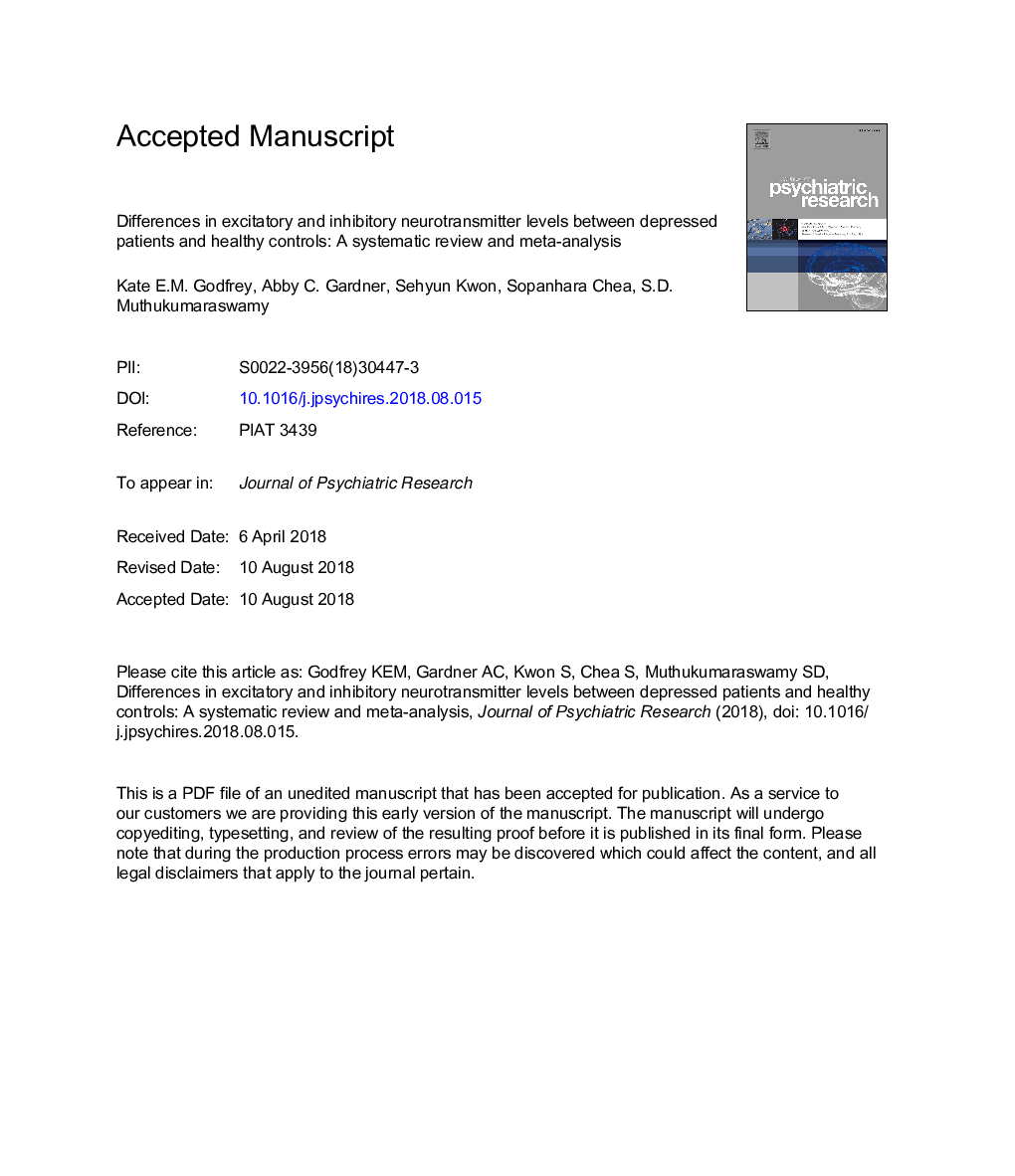| Article ID | Journal | Published Year | Pages | File Type |
|---|---|---|---|---|
| 8941693 | Journal of Psychiatric Research | 2018 | 34 Pages |
Abstract
Dysfunction of gamma-aminobutyric acid (GABA) and/or glutamate neurotransmitter systems have increasingly been implicated in the aetiology of Major Depressive Disorder (MDD). It has been proposed that alterations in GABA and/or glutamate result in an imbalance of inhibition and excitation. In a review of the current literature, we identified studies using Magnetic Resonance Spectroscopy (MRS) to examine the neurotransmitters GABA, glutamate, and the composite glutamate/glutamine measure Glx in patients diagnosed with MDD and healthy controls. Results showed patients with MDD had significantly lower GABA levels compared to controls (â0.35 [-0.61,-0.10], pâ¯=â¯0.007). No significant difference was found between levels of glutamate. Sub-analyses were performed, including only studies where the Anterior Cingulate Cortex (ACC) was the region of interest. GABA and Glx levels were lower in the ACC of MDD patients (â0.56 [-0.93,-0.18] pâ¯=â¯0.004, and 0.40 [-0.81,0.01] pâ¯=â¯0.05). This review indicates widespread cortical reduction of GABA in MDD, with a trend towards a localised reduction of Glx in the ACC. However, given both GABA and glutamate appear decreased a simple interpretation in terms of an imbalance of overall excitation-inhibition is not feasible.
Keywords
Related Topics
Life Sciences
Neuroscience
Biological Psychiatry
Authors
Kate E.M. Godfrey, Abby C. Gardner, Sarah Kwon, William Chea, Suresh D. Muthukumaraswamy,
